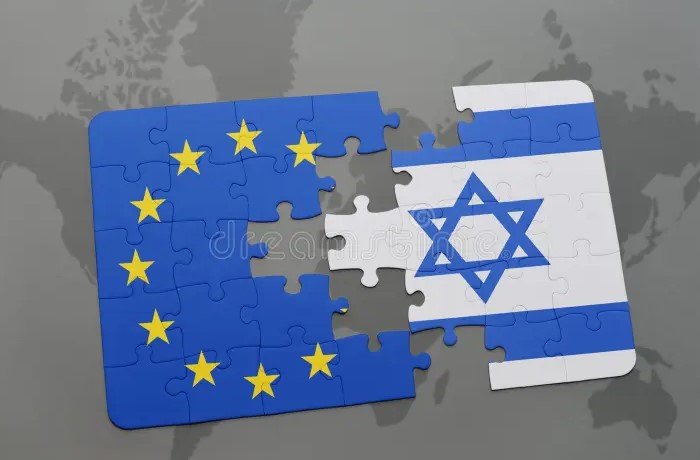The European Union has moved to impose sanctions on Israel amid ongoing violence in Gaza and the West Bank, targeting far-right ministers and trade ties. This decision, announced in mid-September 2025, comes as the EU seeks to pressure Israel to end its military actions and address humanitarian concerns, with member states now set to vote on the proposals.
Details of the Proposed Sanctions
The European Commission presented a package that includes suspending parts of the EU-Israel Association Agreement, which could hit Israeli exports hard. This move follows months of debate and public pressure over the Gaza war, which has caused widespread destruction since late 2023.
Officials say the sanctions aim to curb violence by extremist settlers and push for a ceasefire. They would affect about 37 percent of Israel’s exports to the EU, worth around 5.8 billion euros annually. Chemicals, machinery, and arms are exempt under global trade rules.
The plan also targets individuals like Finance Minister Bezalel Smotrich and National Security Minister Itamar Ben Gvir, known for their hardline views. If approved, these measures would freeze assets and impose travel bans.

EU leaders, including Commission President Ursula von der Leyen, have called the Gaza situation horrific and demanded immediate humanitarian access. The proposals need unanimous approval from all 27 member states, which could prove challenging given past divisions.
Impact on Trade and Economy
Suspending the trade deal would reintroduce tariffs on many Israeli goods entering the EU market. Israel relies on the EU as its largest trading partner, with total trade valued at over 46 billion euros in 2024.
This could raise costs for European consumers on items like fruits, vegetables, and tech products from Israel. Analysts predict a potential drop in Israeli GDP by up to 1 percent if fully implemented, based on economic models from recent studies.
On the flip side, the EU aims to protect its own interests by excluding sensitive sectors. For example, arms trade remains under national control, so countries like Germany and France can continue deals independently.
Here is a breakdown of key trade figures affected:
| Category | Annual Value (Euros) | Percentage of Total Exports |
|---|---|---|
| Agricultural Products | 2.1 billion | 15% |
| Manufactured Goods | 3.2 billion | 22% |
| Other Exports | 0.5 billion | 3% |
These numbers highlight how the sanctions could disrupt supply chains without crippling the entire economy.
Political Reactions and Challenges
Israeli officials have blasted the proposals as morally distorted and vowed retaliation. Prime Minister Benjamin Netanyahu’s government argues the measures ignore threats from groups like Hamas.
In Europe, reactions vary. Progressive lawmakers in the European Parliament, including Greens and Left groups, welcome the steps but call them insufficient. They push for a full arms embargo and support for International Criminal Court probes.
Conservative voices, especially in Germany and Hungary, show hesitation. A German spokesperson noted Berlin is still reviewing the plan, while Hungary has blocked similar measures before.
Public opinion in Europe leans toward action, with polls from 2025 showing over 60 percent of citizens in countries like Spain and Ireland favoring sanctions. This pressure has grown amid reports of over 40,000 civilian deaths in Gaza since the conflict escalated.
- Key challenges include achieving unanimous EU approval, as vetoes from even one state can halt progress.
- Potential for diplomatic fallout, with Israel possibly reducing cooperation on security issues.
- Broader implications for Middle East peace talks, which remain stalled despite international efforts.
Humanitarian Context and Global Response
The Gaza war has displaced millions and created a severe humanitarian crisis, with aid access restricted. The EU’s move ties into global calls for accountability, including UN resolutions condemning settlement expansions in the West Bank.
Recent events, such as Israel’s ground offensive in Gaza City in September 2025, have intensified scrutiny. The EU has already paused some bilateral funding worth 9.4 million euros, focusing on research programs like Horizon Europe.
Other nations are watching closely. The United States has expressed concerns but not joined sanctions, while countries like Turkey and South Africa have taken stronger stances against Israel.
Experts argue these measures could encourage negotiations, drawing parallels to past sanctions on Russia over Ukraine, which altered trade dynamics significantly.
What Happens Next
The proposals head to the EU Council for debate, with a decision expected within 30 days. If passed, sanctions would activate after notifying Israel, potentially by late October 2025.
Analysts predict mixed outcomes, with some states like Ireland and Spain pushing hard for approval, while others drag their feet. This could test EU unity on foreign policy.
In the meantime, humanitarian groups urge faster action to allow aid into Gaza, where food shortages affect over 2 million people.
We encourage readers to share this article and comment below with your thoughts on the EU’s approach. How do you think these sanctions will impact the region?
